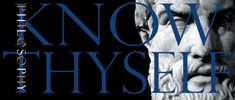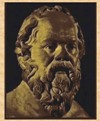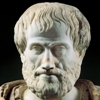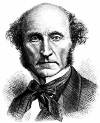A Brief History of Philosophy

Humor alert: Being a compilation of student research collected over the years, gently edited by Stephen Hicks, Rockford College (updated: December 2012).
Is philosophy a waist of time?
Ethical debates have been around for a long time, but nobody seems to have any answers. Ethnics are very important. Basically, what you do with your life comes down to your personal ethnics. For the world to be good means having strong Altruistic people to help the society survive in this doggy dog world.
 Socrates started democracy in Greece so he is a democrat. When Socrates was in court he was blamed for piety and disturbing the youth. Melekus is the accuser in the case of Socrates. Another charge brought up against him was pity. Socrates argues that the son is not a god but simply a burning rock in the sky. So Socrates was convicted and sentenced to life in prison.
Socrates started democracy in Greece so he is a democrat. When Socrates was in court he was blamed for piety and disturbing the youth. Melekus is the accuser in the case of Socrates. Another charge brought up against him was pity. Socrates argues that the son is not a god but simply a burning rock in the sky. So Socrates was convicted and sentenced to life in prison.
To Socrates, having a good life meant dying. Socrates was completely opposed to the Sophists. Not only did the Sophists not have reasons, they also did not have reasons. Sophists felt that there were no real reasons.
For Aristotle, the virtuous person can be known as temperature, someone who is under complete control. Aristotle thinks the Principle of Noncontradiction is an axiom is because it is one.
God is known for many things. We are all born with God’s word written on our sole. Yet the existence of God is questionable since evil does have some good points to make.  The greatest gift is to be in God’s presents, but when we are in God’s presents we should not think about ourselves. John Hick rebukes the concept that God would not allow suffering if he existed in the third paragraph of his essay. Because of evil there is said to be another force in the universe — a dark force. His name is Satin.
The greatest gift is to be in God’s presents, but when we are in God’s presents we should not think about ourselves. John Hick rebukes the concept that God would not allow suffering if he existed in the third paragraph of his essay. Because of evil there is said to be another force in the universe — a dark force. His name is Satin.
In the Bible, God created the heavens and the universe in seven days, so there are seven planets. (Seven is a big thing in the Bible.) The Bible has many commandments such as thou shalt not murder and honor thy mother and father.
Mysticism is the direct and immediate experience of the scared.
 Under feudalism, a few at the top benefitted from power and everyone else was a pheasant. The aristocrats were trained for war and succeeded through their marital skills: swordsmanship, strategy, and self-defense. In feudal times, jobs were passed on from fathers to sons. For example, if your father was a priest, you would probably become a priest too.
Under feudalism, a few at the top benefitted from power and everyone else was a pheasant. The aristocrats were trained for war and succeeded through their marital skills: swordsmanship, strategy, and self-defense. In feudal times, jobs were passed on from fathers to sons. For example, if your father was a priest, you would probably become a priest too.
Priests vow poverty and while money isn’t everything a priest should be able to have a little of life’s enjoyments just like every other human bean. Priests also take the vow of celibacy. On the conventional view, sex without the possibility of recreation is immoral.  Priests want to sustain themselves from sex so they can have eternal childhood in the Lord’s eyes. One thing religions teach is that you should prey regularly.
Priests want to sustain themselves from sex so they can have eternal childhood in the Lord’s eyes. One thing religions teach is that you should prey regularly.
The book Mere Christianity, by C.S. Lewis, is a novel about Christian vice, such as pride, gluttony, and forgiveness. Lewis defends the Christian heresy that we invented God and the universe in our own image. This is why you are insignificant to God. He also has strange views on Christian marriage about why the man is the head of the household. Even in marriage, gluttony is never right, especially if indulging in sex.
Does man need religion? Yes, and we need religion a heck of a lot more than it needs us. Though some people base their life solely on religion, which may be perceived as silly, but imagine how lost they would be if they didn’t have something so vital. That would be like me going without coffee.
In Renaissance Florence humans were studied, so philosophy was called Humanism. Aristotle opened a university there he called “The School of Athens.” Around Italy it was also called the “Academy,” and it allowed liberal students to get an education.
 In modern times Decarrt explains why reason is wrong. My senses sometimes deceive me from far away, so how can you believe your senses when that happens? He shows that I am a real thing but what kinda of thing? Descartes proved that God exists in Medication III. The argument is sound, me being from the South and a firm believer in the Lord.
In modern times Decarrt explains why reason is wrong. My senses sometimes deceive me from far away, so how can you believe your senses when that happens? He shows that I am a real thing but what kinda of thing? Descartes proved that God exists in Medication III. The argument is sound, me being from the South and a firm believer in the Lord.
 Galileo was on trial for his blasphemic saying the Earth is the center of the universe. In Galileo’s time no one could push science forward without the Church killing them. With his huge telescope, Galileo noticed that the earth moved. Galileo had people follow his exact word, and those people were called the people of Galilee. This was a smart play toward the Church by Galileo. Galileo also worked with gravity, which is what causes the cause and effect effect.
Galileo was on trial for his blasphemic saying the Earth is the center of the universe. In Galileo’s time no one could push science forward without the Church killing them. With his huge telescope, Galileo noticed that the earth moved. Galileo had people follow his exact word, and those people were called the people of Galilee. This was a smart play toward the Church by Galileo. Galileo also worked with gravity, which is what causes the cause and effect effect.
Basically, we need to decide what’s best for society as a hole. That is the purpose of laws. Some states have laws that if broken cause one to be a criminal. Power definitely corrupts; both power and corruption are all too often abused.
 Justice is really a double bladed sword: at times it is a warm blanket keeping you safe and at other times an uncontrollable juggernaut ready to mow you over.
Justice is really a double bladed sword: at times it is a warm blanket keeping you safe and at other times an uncontrollable juggernaut ready to mow you over.
In our country, the Deceleration of Independence sets the basic rights and laws. Some people have the right to liberty, but are unable to exorcize it. Shall I go against the laws put forth by my four fathers, who wrote, “All men are entitled to certain unalienable rights”?
 Capital punishment is the death penalty for a crime that dates back to the beginning of civilization. Some people believe in capital punishment because of the “eye for an eye” theory: for instance, if you kill me, I should be able to kill you. Capital punishment is mostly about whether persons who have been executed will commit further offenses if and when released. Cruel and unusual punishment is included in the Constitution. But Capital Punishment violates the Eighth Amendment because it makes people feel like they are less of a person.
Capital punishment is the death penalty for a crime that dates back to the beginning of civilization. Some people believe in capital punishment because of the “eye for an eye” theory: for instance, if you kill me, I should be able to kill you. Capital punishment is mostly about whether persons who have been executed will commit further offenses if and when released. Cruel and unusual punishment is included in the Constitution. But Capital Punishment violates the Eighth Amendment because it makes people feel like they are less of a person.
But really, the death penalty is not necessary because it is not needed.
 In modern times, Utilitarianism is the doctrine that we should all strive to pleasure our neighbors. John Stuart Mill said that even if what is being said is true, it is still wrong to censor it. Of course, we cannot take it for granite that all of Mill’s assumptions are true.
In modern times, Utilitarianism is the doctrine that we should all strive to pleasure our neighbors. John Stuart Mill said that even if what is being said is true, it is still wrong to censor it. Of course, we cannot take it for granite that all of Mill’s assumptions are true.
 According to Freud, the USA became a frightened country after the terrible events of 9/11. Freud opposes the tabula razor theory of human nature. According to Freud, the child has lust during the breast-feeding stage. Eventually his mother stops, and his lust is suppressed until his adultery stage. Freud had issues.
According to Freud, the USA became a frightened country after the terrible events of 9/11. Freud opposes the tabula razor theory of human nature. According to Freud, the child has lust during the breast-feeding stage. Eventually his mother stops, and his lust is suppressed until his adultery stage. Freud had issues.
 Marx says the broughers who employ the workers can and do enslave the proliterate workers. So Marx promoted socialism, which operates the production of products produced by the society. Marx believed socialism was the best form of government for the world after World War II. Communist Russia failed because of Mises and Hayek’s lack of knowledge. Socialism is an ideal, but come on now! Let’s be realistic!
Marx says the broughers who employ the workers can and do enslave the proliterate workers. So Marx promoted socialism, which operates the production of products produced by the society. Marx believed socialism was the best form of government for the world after World War II. Communist Russia failed because of Mises and Hayek’s lack of knowledge. Socialism is an ideal, but come on now! Let’s be realistic!
 Ayn Rand, in his book about art, argues that romantic people have feelings. Rand feels that if we let go of logic and reason we can understand what art really is. Perhaps Rand is the new Kant. Against Marx, Rand advocates free enterprise and self interest. The rich are able to create new jobs and hand them out to the poor, which takes many poor people out of poverty and also gives the rich something to do. She said that minimum wage increases raise the cost of labor, so workers may lose their fridge benefits. But her philosophy is sort of controversial, in a sense. She commits the fallacy of hoc poc der doc.
Ayn Rand, in his book about art, argues that romantic people have feelings. Rand feels that if we let go of logic and reason we can understand what art really is. Perhaps Rand is the new Kant. Against Marx, Rand advocates free enterprise and self interest. The rich are able to create new jobs and hand them out to the poor, which takes many poor people out of poverty and also gives the rich something to do. She said that minimum wage increases raise the cost of labor, so workers may lose their fridge benefits. But her philosophy is sort of controversial, in a sense. She commits the fallacy of hoc poc der doc.
[Return to the StephenHicks.org main page.]
A veil has been lifted from mine eyes…
I emphatically agree with Rand that romantic people have feelings, and I’m sure John Hick would not rebuke that. Ethnics are definitely important as they make living in this doggy dog world more fun. And who can doubt that corruption is sometimes – dare I say it? – even often, abused. I agree that if you kill me I should be able to kill you, but it strikes me that finding the means to do so presents an unusually formidable challenge. “Marx believed socialism was the best form of government for the world after World War II”. We can only stand in awe of his prescience. “Communist Russia failed because of Mises and Hayek’s lack of knowledge.” I wonder if I’m the only one who suspected as much: Their greatest failing in my view was that of committing the fallacy of hoc poc der doc. What could Stalin do against that?
A salient barometer and indictment of the American public school system. Tongue outta cheek, this has to be disheartening at times.
Glad you’ve been enlightened, Edward.
I collected the bloopers over many years — an occasional error among hundreds of tests and essays — so it’s not that bad actually.
Though all strung together they can give a disheartening effect, as you suggest.
Yes they would be marginal, gathered over many years and I may have responded too impulsively to the sum total. But they really are hilarious. Glad you posted them.
The only issue I see here was that hoc poc per doc was not attributed to Dr. Suess.
The reader might be well-advised to download the podcast THE HISTORY OF PHILOSOPHY WITHOUT GAPS given by Peter Adamson (sic?) somewhere in England, although he is American. This podcast covers the philosophers in strict chronological order. He’s gotten up to the late medievalists so far.
“Is philosophy a waist of time?”
Seriously? If there’s that bad of an error in the first sentence, I won’t read the rest of the article.